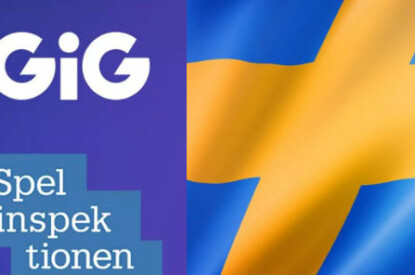Interactive
Sweden – EC refers Swedish monopoly to the Court of Justice
By Phil - 20 October 2014
The European Commission has taken two separate decisions to refer Sweden to the Court of Justice of the EU in relation to Swedish legislation for gambling services.
In November 2013 the Commission asked Sweden to take action to ensure compliance of its national rules with EU law in the areas of online betting services and online poker services. The Commission does not consider the Swedish reactions to these requests as satisfactory.
Svenska Spel, a state owned gambling operator that operates the Casino Cosmopol brand currently has exclusive rights to offer online gambling services in Sweden. The EC believes that Sweden is in breach of European business legislation regarding a restrictive monopoly and the free movement of goods and services within the European Union.
Consequently, it has referred Sweden to the Court of Justice for imposing restrictions on the organisation and promotion of online betting services in a way which is inconsistent with EU law. The Commission considers that the way that the Swedish exclusive right system for sport betting is organised is inconsistent with the aim of achieving the public policy objectives of preventing problem gambling and criminal activities and lacks the necessary state control. Changes to the Swedish gambling law in order to make it compliant with EU law have long been envisaged but never implemented.
In the second case, the referral to the Court of Justice is based on restrictions on the provision and promotion of online poker games. The Commission is of the opinion that the exclusive right holder is not subject to adequate control by the Swedish authorities and that the restrictive policy in the area of poker games is not consistent as the Swedish authorities tolerate the unauthorised offer and promotion of poker games.
Member States may restrict or limit the cross-border supply of all or certain types of gambling services on the basis of public interest objectives such as consumer protection or the prevention of fraud and other criminal activities. However, Member States must demonstrate that the restrictive measures in question are suitable and necessary. They need to show in particular the existence of a genuine problem linked to the public interest objective at stake and that public interest objectives are being pursued in a consistent and systematic manner. Member States must not undertake, facilitate or tolerate measures that would run counter to the achievement of these objectives.
In its Communication “Towards a comprehensive European framework on online gambling”, adopted on October 23 2012, the Commission announced that it would accelerate completion of its assessment of national gambling provisions and take enforcement action wherever necessary.
It is a breakthrough decision because this is the first time that the EC has taken a Member State to Court over its online gambling legislation. A number of other pending cases are ready to be referred and in November 2013 new infringement proceedings were additionally opened.
Maarten Haijer, Secretary General of EGBA said: “EGBA fully supports and commends the EC for taking this decision. This is a breakthrough that shows a strong commitment to upholding fundamental European freedoms. Sweden was given many years to bring its legislation into conformity but regretfully there was little commitment to change. EGBA fully expects other Member States to soon be referred to the Court. There is a long list of pending cases that are ready to be taken to Court. No Member State regardless of its size should be exempt from scrutiny. However, EGBA stands ready to support any Member State that now decides to reform their legislation to ensure compliance with EU rules.”



